Research
Research plays a significant role at YetiCare as our health technology has been actively involved in university research and other collaboration projects. Read more about the studies YetiCare has been involved in.
Research plays a significant role at YetiCare as our health technology has been actively involved in university research and other collaboration projects. Read more about the studies YetiCare has been involved in.

Exergaming in long-term care facilities (LTCFs) shows promise in improving physical and social functioning, and boosting physical activity among older adults. The psychological benefits, like reducing depression, are less certain. More research is required on the social impacts and smart device use. Integrating gaming into daily rehab care is recommended.
Saara Kukkohovi, a PhD researcher at the University of Oulu, has studied the effects and benefits of digital gaming on older people’s ability and activity levels.
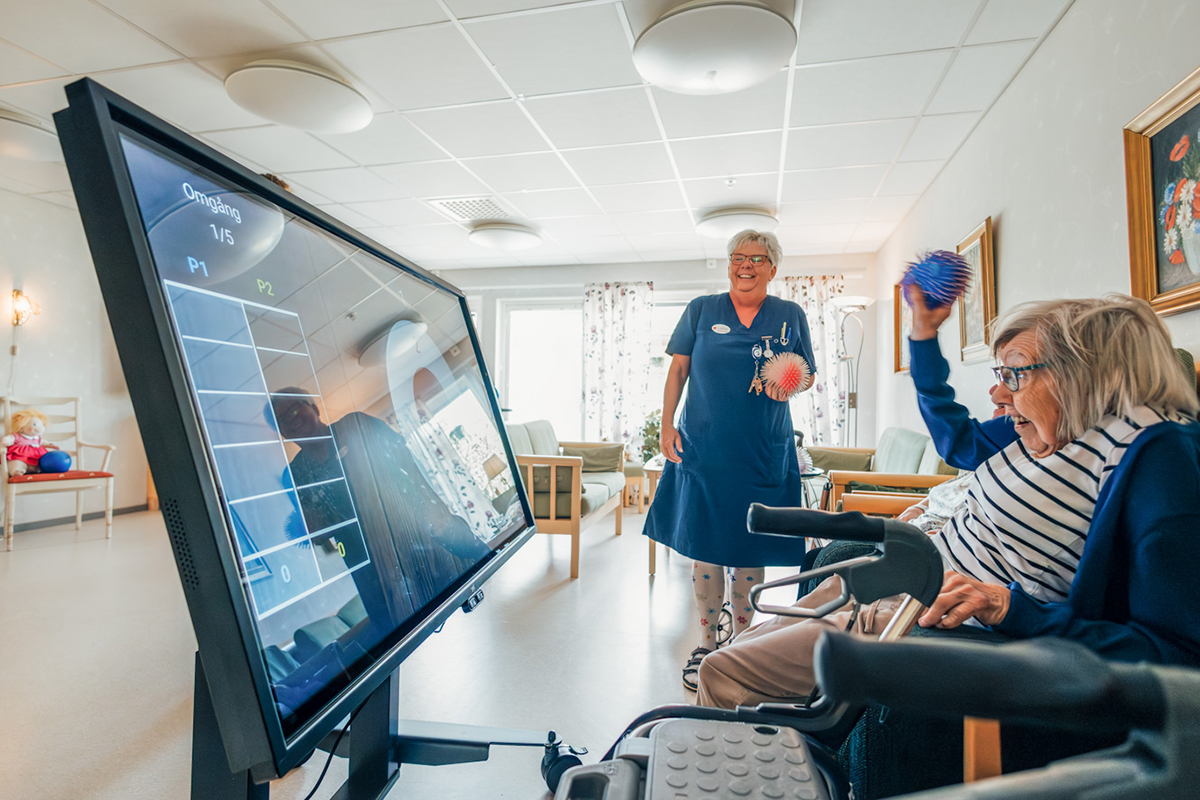
A study conducted as a thesis (2024) explored caregivers’ attitudes and perceptions of Yetitablet. The goal was to gather insights into carers’ opinions on the usability of activating technology in elderly care. The study revealed a notable change in caregivers’ attitudes—initial scepticism evolved into strong recommendations for using YetiCare technology.
Read more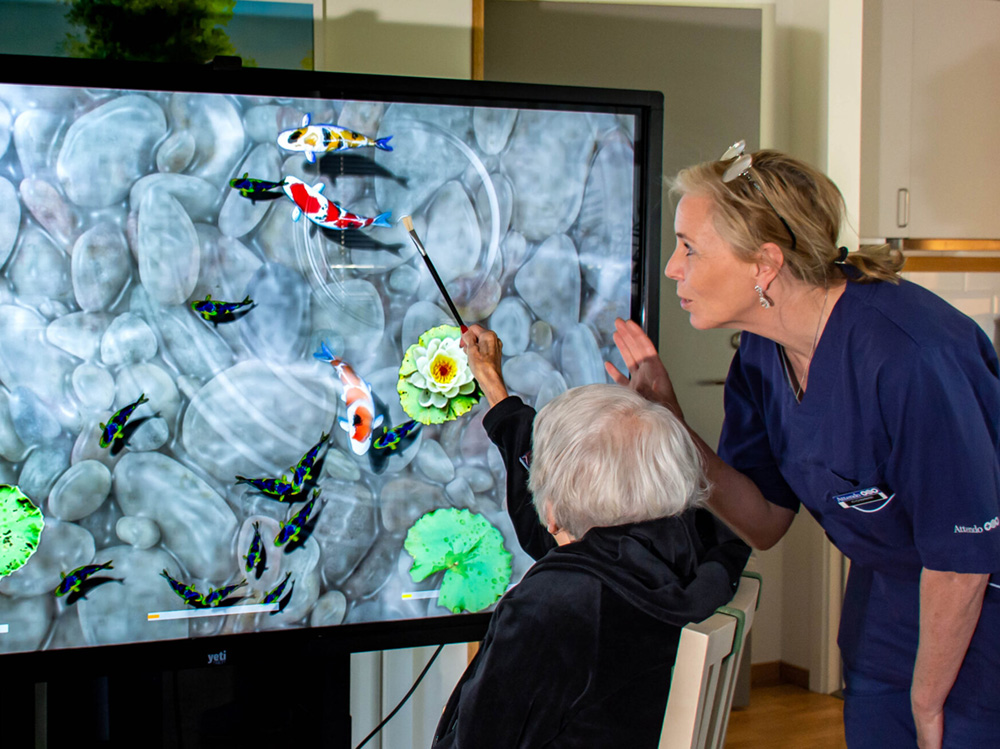
YetiCare was involved in the TYÖHYVE (Promoting occupational well-being in the senior care homes) project implemented by Lapland University of Applied Sciences in 2022. Based on the results gained during the project, health technology, such as YetiCare, can positively influence the well-being of residents and employees in care homes.
Read more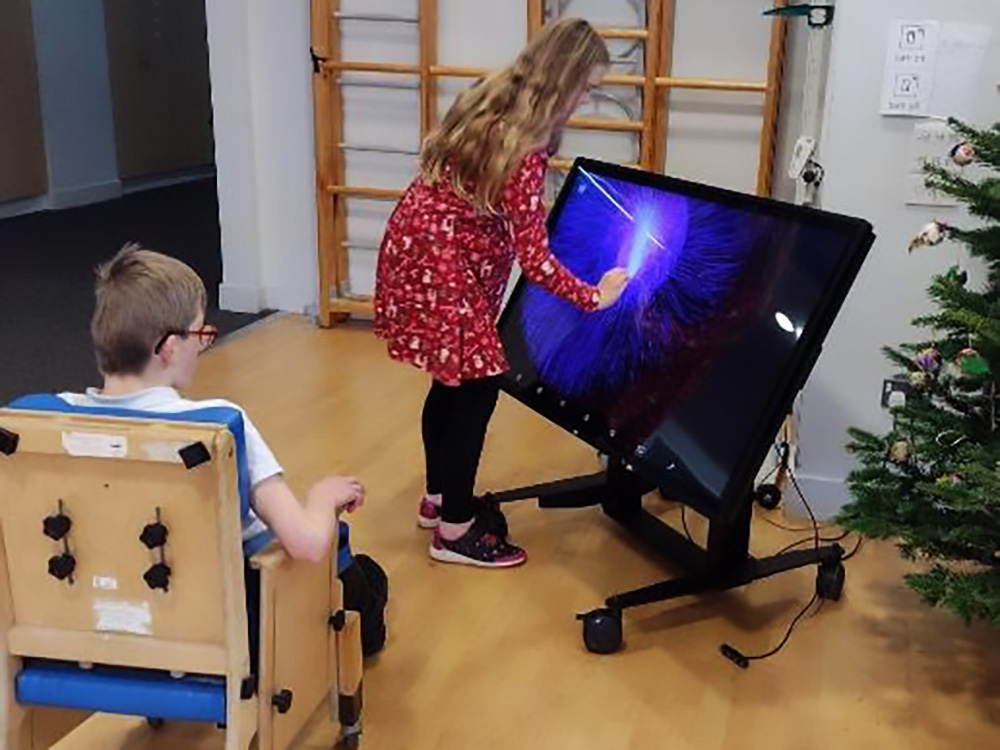
As a component of the EU-funded EPIC project, the health technology of YetiCare was examined in a UK special needs school. A notable outcome of the investigation was observing children utilising YetiCare for self-regulation while remaining within the classroom’s premises.
Read more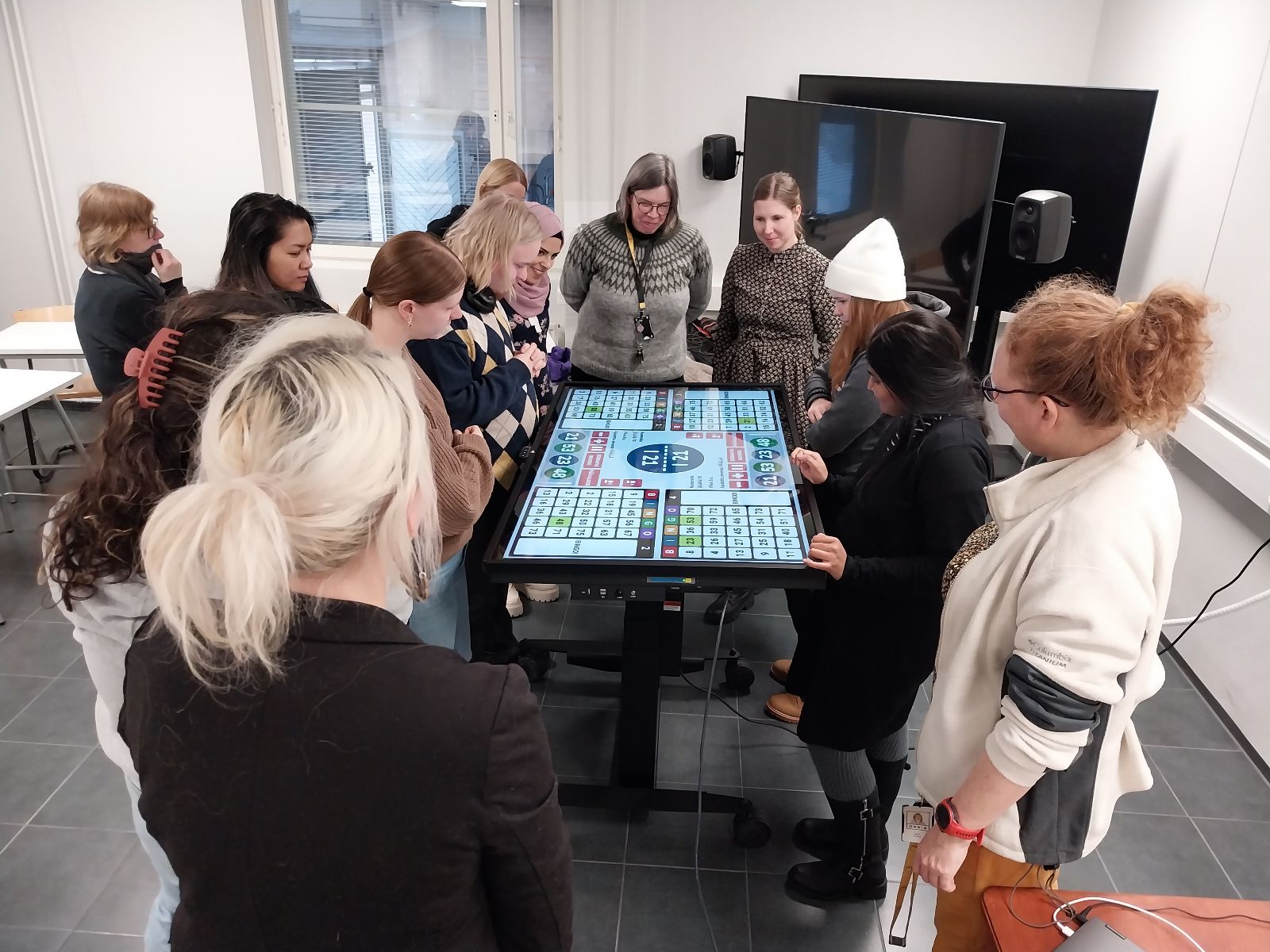
The cooperation between Omnia, Leppävaara Life and Living Centre in Espoo and YetiCare was built around the optional degree component Welfare technology in promoting functional ability.
The aim was that both the students and the employees of the senior centre would learn to use new technologies.
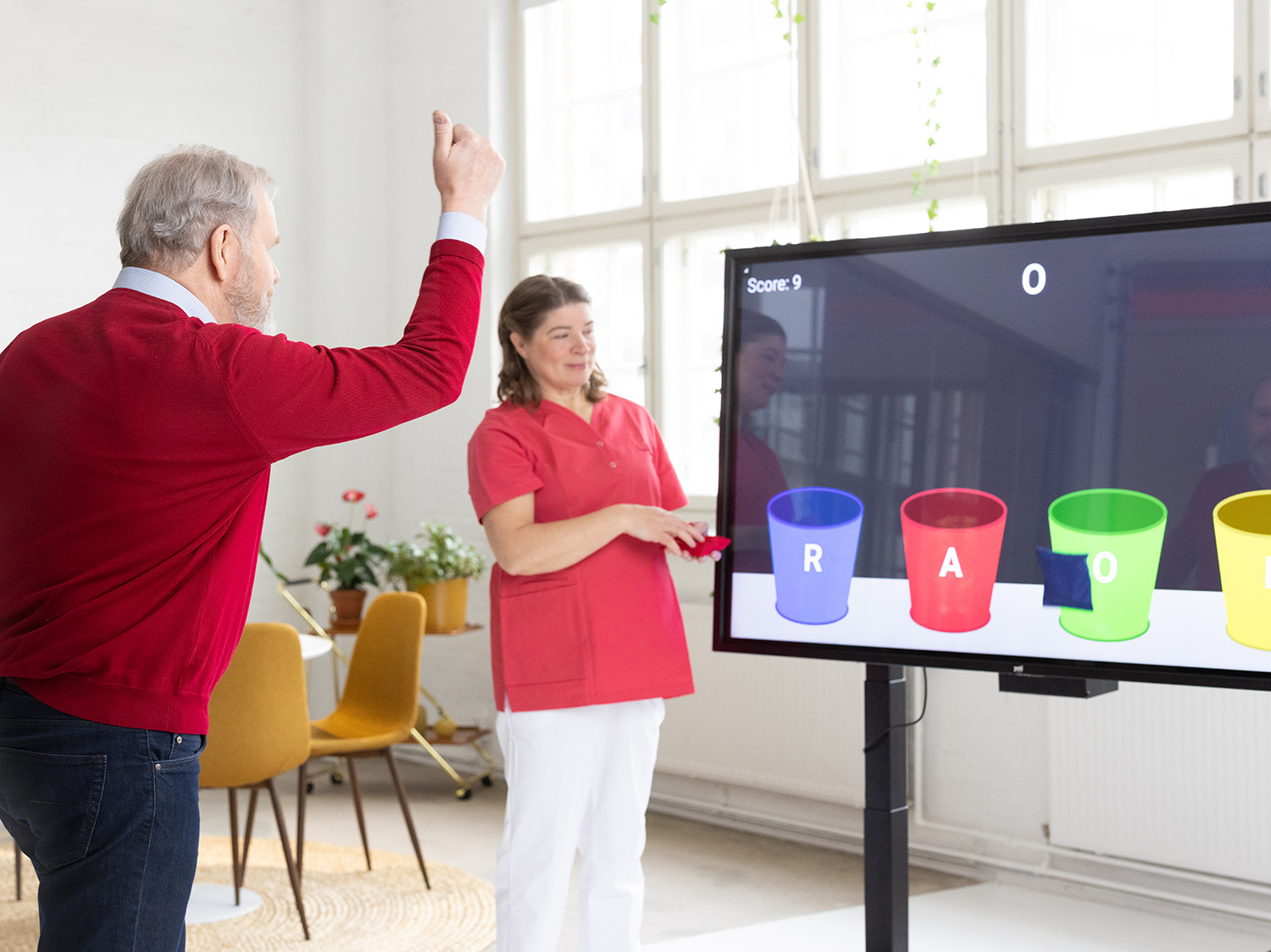
Digital games can improve physical and social interactions among older adults in LTC facilities but are challenging to implement due to limited staff resources.
This study tested a gaming intervention using the Yetitablet with seven residents (average age 86, with memory disorders). The intervention increased physical and social activity and added joy to daily lives. However, staff involvement was low. Important factors for success include staff attitude, training, and proper use of technology. The study found the intervention feasible and beneficial, paving the way for future research.